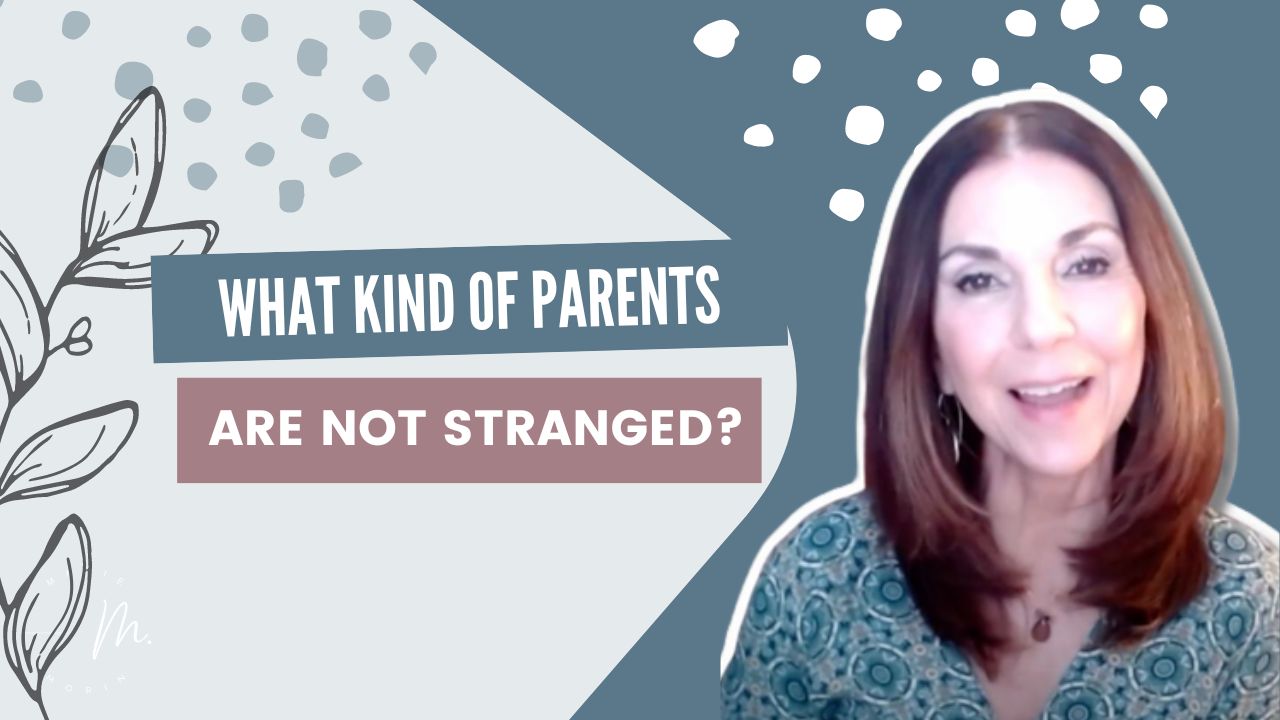As human beings, we all have a deep-seated need to belong and connect with others, especially our family members. However, sometimes the relationship with our parents can become strained or even severed, resulting in estrangement.
Parental estrangement is a complex issue caused by various factors, including abuse, neglect, differing values, and lifestyle choices. While every situation is unique, there are certain types of parents who are less likely to experience estrangement with their children. These supportive and loving parents respect their children’s independence and allow them to make their own choices.
This article discusses What Kinds Of Parents Are Not Estranged.
What Parental Behaviors Warrant Estrangement?
Estrangement from parents is a difficult decision that adult children may face. While every situation is different, certain behaviors can warrant estrangement. Here are some common toxic behaviors research finds that can make estrangement necessary.
1. High Levels of Criticism
Parents who are highly critical of their children, constantly pointing out their flaws and shortcomings, can cause significant emotional harm. This behavior can lead to low self-esteem, anxiety, and depression.
2. Demandingness
Parents who are excessively demanding, expecting their children to meet unrealistic expectations, can create significant stress and anxiety. Overly demanding parents can be particularly damaging when expectations do not align with the child’s interests or abilities. An adult child might cut ties when parents are unwilling to compromise or adjust their expectations.
3. Favoritism
When parents show favoritism towards one child over another, it can create significant resentment and feelings of inadequacy in the unfavored child. This can lead to significant emotional harm and can damage the relationship between parent and child.
4. Shaming
Parents who shame their children for their choices or behaviors can cause emotional harm. Shame can lead to feelings of guilt, shame, and low self-esteem. When parents consistently use shaming as a form of discipline or control, estrangement may be necessary to protect the child’s mental health.
5. Scapegoating
Parents consistently blaming one child for family problems or conflicts can create significant emotional harm. Scapegoating can lead to feelings of isolation and hurt the relationship between parent and child.
6. Reliance on the child for emotional and physical support
Parents who rely on their children for emotional and physical support can create a lot of stress and anxiety for the child. When the parent cannot care for themselves, the child may develop a heightened sense of independence and estrange from the parent later in life.
7. Conditional affection and attention
Parents offering affection and attention only when the child meets certain conditions can create enormous emotional harm. Conditional love can lead to feelings of inadequacy for the child and damage the relationship.
8. Parentification
When parents expect their children to take on adult responsibilities, such as taking care of younger siblings or managing household finances, it can create significant stress and anxiety for the child. Parentification is damaging when the expectations are not aligned with the child’s interests or abilities.
In summary, estrangement is warranted when parents engage in consistent abuse and toxic behaviors. Adult children who have experienced these behaviors may need to protect their mental health and well-being by cutting off contact with their parents. While this decision is never easy, it is essential for adult children to prioritize their own mental health and well-being and to do what they feel is necessary to move forward and live their best lives.
What Kinds Of Parents Are Not At Risk?
While it is true that some adult children may choose to estrange themselves from their parents due to toxic behaviors, many parents are not at risk for estrangement. Here are some characteristics of parents who have healthy and positive relationships with their adult children:
1. Respectful and supportive
Parents who respect and support their adult children’s choices and lifestyles are less likely to be estranged from them. These parents understand that their children have unique values and beliefs, and they respect their children’s autonomy and independence.
2. Good communication skills
Parents who have good communication skills are more likely to have positive relationships with their adult children. They can listen to their children’s perspectives and express their thoughts and feelings respectfully and effectively. They also maintain open and honest communication with their children, which helps to build trust and understanding.
3. Empathetic and understanding
Parents who empathize and understand their children’s feelings and experiences are less likely to be estranged from them. They can put themselves in their children’s shoes and validate their emotions, which helps strengthen the parent-child bond.
4. Non-judgmental and accepting
Parents who are non-judgmental and accepting of their adult children’s choices and lifestyles are less likely to be estranged from them. They understand that their children may have different values and beliefs than their own, and they can accept and embrace these differences.
5. Willing to apologize and make amends
Parents willing to apologize for their mistakes and make amends are likelier to have positive relationships with their adult children. They understand that they are not perfect and may make mistakes, and they take responsibility for their actions.
6. Respectful of boundaries
Parents who respect their adult children’s boundaries are less likely to be estranged from them. They understand that their children may need space or be uncomfortable with specific topics and respect these boundaries.
While some adult children may choose to estrange themselves from their parents due to toxic behaviors, many parents have positive and healthy relationships with their children. These kinds of parents are much less likely to become estranged.
Does Perfect Parenting Exist?
The short answer is no – perfect parenting does not exist. Every parent makes mistakes, and it’s impossible to get everything right 100% of the time. However, it’s important to note that making mistakes does not necessarily lead to estrangement from adult children.
Parenting is complex and challenging; many factors influence how parents raise their children. For example, parents may have unresolved issues or traumas that affect their parenting style. Factors such as race, class, and demographic will influence parenting. They may also face external stressors, such as financial difficulties or work-related stress, that can impact their ability to be their best parent.
Additionally, children have unique personalities and experiences, and they may interpret and respond to their parents’ behaviors and actions in different ways. What may be perceived as a mistake by one child may not be perceived as such by another.
Parents need to acknowledge and take responsibility for their mistakes, but it’s equally important to recognize that perfection is not a realistic goal. Instead, parents can focus on building and maintaining positive relationships with their adult children by being open to feedback, learning from their mistakes, and prioritizing communication, respect, and understanding.
Family Conflict Does Not Equal Bad Family
Remember that conflict within a family does not necessarily mean the family is terrible or dysfunctional. Conflict is normal in human relationships, and families are no exception. Some levels of conflict can even be healthy as they can lead to growth and improved communication within the family.
How it is handled is more important than the presence of conflict. Suppose family members can communicate openly and honestly and work together to resolve disputes respectfully and productively. In that case, the family can continue to function healthily and positively.
It’s also important to recognize that every family is unique, with its own set of strengths and weaknesses. Just because a family may experience conflict does not necessarily mean that it is less functional or less loving than another family that appears to have less friction.
Conclusion
In conclusion, estrangement between adult children and their parents is a complex issue that can arise from a variety of factors. While some behaviors and actions increase the risk of estrangement, there is no guarantee that even seemingly perfect parenting can prevent it.
Families must prioritize healthy communication, mutual respect, and empathy to reduce the risk of estrangement and maintain positive relationships. Families with good conflict resolution skills are better equipped to handle conflicts and prevent them from escalating into long-term issues.
However, even with these efforts, families may still experience estrangement, and parents need to respect their adult child’s autonomy and individuality, even if they disagree with their choices. This article discusses What Kinds Of Parents Are Not Estranged.









